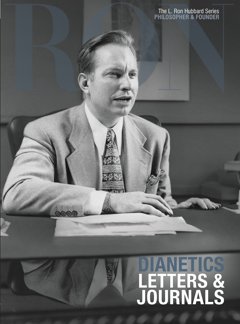The 8-Minute Rule for Dianetics
The 8-Minute Rule for Dianetics
Blog Article
3 Easy Facts About Dianetics Shown
Table of ContentsTop Guidelines Of DianeticsThe Buzz on DianeticsA Biased View of DianeticsSome Of Dianetics
I couldn't ever not intend to receive anything that comes to mind for you- if it was or else, I wouldn't be resting here with you, doing this. I not only might never have a problem, or not wish to hear something that comes to mind for you, but I'm totally eager to recognize every concept, every thought, every image or feeling that arises or shows up for you- do not ever before believe otherwise, and if for one reason or another you do, please simply let me recognize! Occasionally, you might have an idea, and picture, idea or case pop up that does not appear to address the inquiry, or connect to it, but nevertheless, constantly do tell me concerning it, and as we proceed, the relevance will certainly emerge for you.This is fundamental in the basis of processing, and the subject of this conversation: the fundamental duties of the counselor and the client: The standard role of the therapist is, in contrast to "basic training", not to regulate, which means to apply and/or prevent, yet to rather function from the basis of EMPOWERING THE CLIENT.

The Best Guide To Dianetics
John Mcmasters shared this fundamental truth incredibly well in one of his lectures on Power processing, in which he clarifies just how he was asked what this "unique knack" was that he had for offering such fantastic sessions; he needed to consider that for a moment, and detected that it was what he wasn't doing, as well as what he was doing: he had not been evaluating, evaluating, computer, or as a matter of fact, generating any kind of ideas, not to mention verbal expressions, after providing the command and while waiting for the PC to finish their solution to their satisfaction; he was, just and only, being present with the PC, and completely interested.
The function of the therapist, showed; that was his "unique propensity". I have actually had my very own experience which taught me this well, very early in the video game. In 1982, having actually lately completed my training and internship on New Era Dianetics, I was running this on a PC, and there was a factor in the session where (being a bit wet behind the ears not yet having lots of hours under my belt as a specialist auditor) the PC seemed to be "taking too long" to express anything vocally after I gave him a command.
This trick became one of the most useful payment that John ever made to the subject of treatment or bookkeeping (Dianetics). In my modest viewpoint, it is the best contribution that any individual has actually ever before made to these subjectsthe application is entirely non-judgemental, non-evaluative, and empty of any type of tip, suggestions or opinion.no preconditioned schedule for people, or 'levels' that they must do
In Idenics, the only source of info regarding a client is the specific client. In Scientology we prided ourselves on not assessing for individuals. All that really meant was that the auditor did not Vocally review for the Computer in session. The registrars and ethics officers assessed for the computer.
Fascination About Dianetics

Any person that had ever before seen John audit could not help but notice an one-of-a-kind quality in his bookkeeping."The client's standard function is to Dianetics be there with the objective of moving in the instructions of their spiritual objectives, and to easily and fully share and experience whatever shows up for them in addressing the inquiries and implementing the guidelines in the processing.
This is something to procedure as needed. Yet additionally, individuals frequently have previous experience and/or indoctrination in auditing/processing which, somehow, and to some degrees, actually misguides them into attitudes, ideas and behavior patterns that stop the complete realization of these duties, and so they will certainly tend to inhibit the expressing of what comes to mind, as in the instances given above. * The first, and probably leading instances of mis-indoctrination bring about much less than totally smooth and effective sessions, can be discovered in specific facets of the training routines, or "TR's":"TR's" are commonly an individual's first, or at the very least Visit This Link early, experience in Scientology, and while I will take place to describe what I see as the imperfections in concept and method, nevertheless, have a tendency to be considerably therapeutic, done as they are given (Hubbard urges that "TR's are not processing, they are training", however factually, they are both processing AND training)
There is no "failing", and no rejection of the fact of this being handling. The emphasis, as it needs to be, i loved this is on experiencing the various other individual's visibility.
All About Dianetics

Report this page